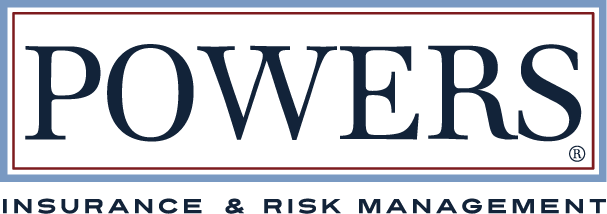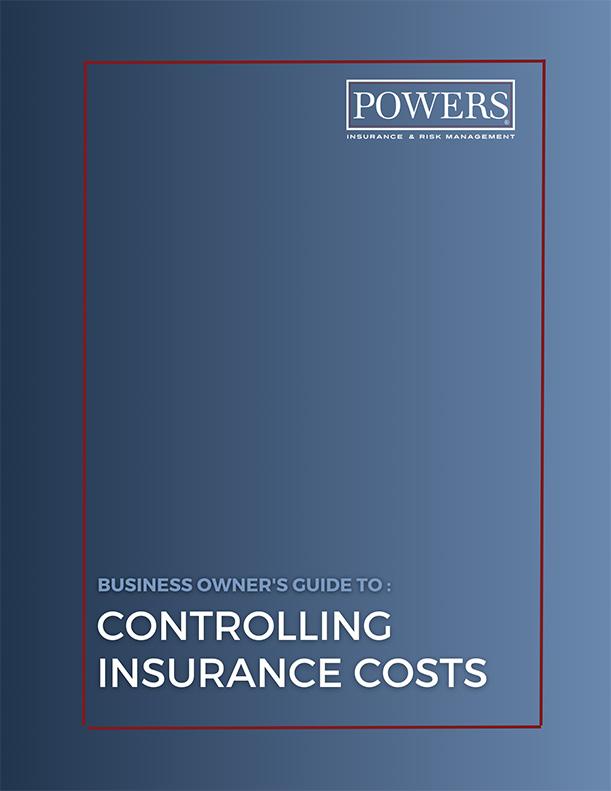How cannabis products could create a million-dollar blind spot in your insurance coverage.
Running a restaurant or bar is already expensive. The last thing you need is a claim that your insurance won’t cover. That’s exactly what can happen if you serve THC-infused drinks or food. Do you think a general liability or a liquor liability policy protects you from a claim involving THC? The answer, for most businesses, is no. THC is not covered under liquor liability. This could leave you responsible for legal fees, settlements, and damages that could reach six or seven figures, or even threaten your entire business.
The goal here isn’t to sound alarm bells; it’s to give you a clear picture of how this coverage gap works, what risks it exposes you to, and what you can do to close it with THC insurance.
POWERS® Insurance & Risk Management focuses on identifying risks, including blind spots that may be hidden within solid coverage. Our goal is to identify these gaps and address them before they become financial disasters.
Navigation Guide
- Why Liquor Liability Doesn’t Cover THC?
- A Real Risk: What Could Happen
- The Solution: Endorse THC coverage
- Risk Management Beyond Insurance
- Why Partner with POWERS® Insurance?
Why Liquor Liability Doesn’t Cover THC?
Liquor liability coverage is specifically designed for incidents involving alcohol. It protects you if a guest drinks too much, leaves your establishment, and causes injury to themselves or others. These protections do not extend to impairments caused by THC and CBD for several reasons.
- Regulatory uncertainty: Since marijuana remains classified as a Schedule 1 drug, most insurance companies are reluctant to cover cannabis-related products or activities.
- Differing legal frameworks: The body of law surrounding alcohol, including “dram shop” laws that hold establishments liable for over-serving, has been developed over many years of regulation and court rulings. In contrast, cannabis law is still changing and consists of a patchwork of state-by-state rules.
- Challenges in assessing THC impairment: THC impacts people very differently from alcohol. Onset times, duration of effects, and impairment levels are much less predictable, creating unknown risk exposures for insurers.
A Real Risk: What Could Happen
To fully understand what’s at stake, let’s walk through a few realistic scenarios.
A Bar Event with a THC Vendor
You host a special event where a local THC vendor sets up inside your bar. Guests enjoy infused drinks along with their cocktails. Later, one drives home impaired, leading to a serious crash. The lawsuit names both your bar and the vendor. Your liquor liability insurer denies coverage because THC was involved. Defense costs, court fees, and potential damages now directly impact your business.
Brewery Serving Infused Beverages
A brewery experiments with non-alcoholic THC seltzers alongside its craft beer lineup. A guest drinks both and later falls on your property, sustaining serious injuries. Because THC impairment was involved, your liquor liability coverage won’t cover the incident. You are left to handle legal costs and damages on your own.
Restaurant Selling THC Edibles
A restaurant introduces THC-infused desserts as a popular new menu item. A customer purchases one and later combines it with alcohol elsewhere. That person later ends up in the hospital after an accident. The family sues your restaurant for contributing to impairment. Even if your connection to the incident seems indirect, you can still be pulled into the lawsuit without THC coverage.
The common thread? Each of these scenarios exposes you to defense costs, settlements, and judgments that can quietly grow into six- or seven-figure liabilities. Even if you win a lawsuit, the expense of defending it could be enough to severely weaken your business.
The Exposure in Numbers
- Defense costs for a single claim can reach tens of thousands of dollars.
- Settlements and judgments in cases involving serious injury or death easily extend into the millions.
- Business disruption is inevitable, draining staff time and resources for months or even years.
- Reputation damage from being tied to an impairment-related lawsuit can scare away customers.
When you consider everything, the financial risk of leaving THC uncovered can threaten your entire operation.
The Solution: Endorse THC coverage
Here’s the good news. Protecting yourself from THC-related risks is fairly simple. You just need to know what questions to ask. The most effective way to shield your business from this gap is to add THC coverage to your general liability policy. An endorsement extends your liquor liability to include THC-related risks, but not every carrier is willing to do this.
- Some carriers will accept THC endorsements, while others won’t.
- If your current provider refuses, you’ll need to switch to a carrier that offers the coverage.
- Once you have the endorsement, your business is protected against THC-related lawsuits and liabilities.
Partnering with POWERS® Insurance & Risk Management offers the advantage of knowing which carriers accept and which deny THC endorsements. We simplify the process to ensure you’re not left vulnerable. Our team will review your existing policy, submit the endorsement request, and collaborate with the appropriate carrier if a switch is needed.
Risk Management Beyond Insurance
Insurance isn’t the only piece of the puzzle. Proactive risk management works alongside proper coverage. To better protect your business:
- Establish clear policies on how THC and CBD products are presented and communicated to guests.
- Make sure vendor agreements include liability clauses and proof of insurance.
- Record incidents involving intoxicated guests from alcohol, THC, or both.
- Train staff to identify signs of impairment and respond effectively.
Why Partner with POWERS® Insurance?
Coverage gaps like this are exactly why hospitality businesses turn to POWERS® Insurance & Risk Management. THC liability is a new and evolving risk, but our job is to anticipate these blind spots before they threaten your livelihood. Here’s what the process would look like to close the gap:
- You connect with POWERS® Insurance and ask for one of our hospitality specialists, like Gio Favazza.
- Gio reviews your policy and confirms whether THC is excluded.
- He requests a THC endorsement from your carrier.
- If the carrier accepts, you’re covered. If they deny, Gio finds a carrier that will provide it.
- The endorsement is added, and your risk is managed.
- We become your advocate if a claim ever arises. We make sure the coverage you’ve invested in works when you need it.
POWERS® Insurance understands the market and knows which carriers will cover THC. Our process is simple and stress-free for everyone involved.
Ready to close the coverage gap? Contact POWERS® Insurance & Risk Management for a free, comprehensive policy review and THC endorsement assessment. We’ll explain what’s covered, what’s not, and how to ensure your business is fully protected.






